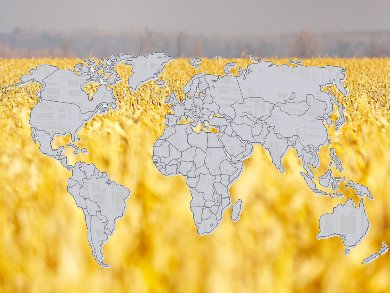In the context of climate change, fossil fuel dependency, and the opportunity for rural developments, biofuel production has significantly increased, especially in tropical regions where the climatic conditions are favorable and the production costs are low. However, biofuels from tropical regions recently got a bad reputation because their production contributes to deforestation, to the exploitation of plantation workers, and competes with food production. Many of these negative effects can be related to the direct and indirect consequences of changing the land use. Thus, biofuel production on land which is not agriculturally used and has a low conservation value is a key requirement to mitigate social impacts and to allow greenhouse gas emission reductions.
However, reduction of greenhouse gas emissions and avoiding competition with food are not the only challenges for the sustainable production of bioenergy. Over their entire life cycle, biofuels are in close interaction with the surrounding ecosystems and generally have a stronger impact on the environment than fossil fuels. The causes of this are the reduction of biodiversity through the cultivation of the land, toxic effects of pesticides and herbicides, eutrophication and acidification of water bodies by leaching of nutrients, but also air pollution, as occurs, for example, in Brazil during pre-harvest burning of sugar cane fields.
Although the world speaks about second generation biofuels from waste and even third generation biofuels from algae [1], first generation agricultural feedstock from tropical regions is currently — and for the short-term future — the only economically viable source for producing biofuels. However, for a sustainable production of first generation biofuels in developing regions, the projects have to be environmentally optimized from a life cycle perspective and carefully integrated in the local socio-economic context. Examples from Tanzania and Colombia show the distinctly different ways that biofuel production must be fitted into the local context in order to ensure an environmentally friendly and socially acceptable expansion. In Tanzania, Jatropha cultivation in hedges helps local farmers saving fuel costs without compromising their food production. In more developed Colombia, the extension of traditional cultivations like sugar cane into underutilised areas helps in creating new income for farmers.
Due to limited land availability, competition with food production, and high overall environmental impacts, the sustainable market potential for biofuels is assumed to be significantly smaller than 10 % of global fuel consumption. Nevertheless, niches for the sustainable production and use of biofuels exist especially in developing countries. Often it is however more sustainable to use biomass feedstock for local supply of electricity and heat because this substitutes more fossil energy as the less efficient production of biofuels for export.
References
[1] R. Zah et al., Future Perspectives of 2nd Generation Biofuels (Ed. TA-Swiss), vdf Hochschulverlag AG, ETH Zurich, Switzerland, 2010. ISBN: 978-3-7281-3334-2
[2] R. Zah, S. Gmünder, A. Ehrensperger, Biol. Unserer Zeit 2011, 41(5) 316–323. DOI: 10.1002/biuz.201110458
Further Information
Swiss Federal Materials Testing and Research Institute (EMPA), Zurich, Switzerland
.jpg) Rainer Zah is head of the Life Cycle Assessment and Modeling group at the Swiss Federal Materials Testing and Research Institute (EMPA). He studied environmental sciences at ETH Zurich, Switzerland, and gained his Ph.D. in aquatic ecology from the Swiss Federal Institute of Aquatic Science and Technology (Eidgenössische Anstalt für Wasserversorgung, Abwasserreinigung und Gewässerschutz, EAWAG) at ETH Zurich. He is involved in various projects on the Environmental Impact Assessment of Biofuels and Bioenergy on the Swiss, European and Global level with a special focus on the North-South-Dimension.
Rainer Zah is head of the Life Cycle Assessment and Modeling group at the Swiss Federal Materials Testing and Research Institute (EMPA). He studied environmental sciences at ETH Zurich, Switzerland, and gained his Ph.D. in aquatic ecology from the Swiss Federal Institute of Aquatic Science and Technology (Eidgenössische Anstalt für Wasserversorgung, Abwasserreinigung und Gewässerschutz, EAWAG) at ETH Zurich. He is involved in various projects on the Environmental Impact Assessment of Biofuels and Bioenergy on the Swiss, European and Global level with a special focus on the North-South-Dimension.
His personal research interest deals with the spatial dimension of environmental impacts induced by new technologies along the full product cycle.
.jpg)
Simon Gmünder studied environmental sciences at ETH Zurich, Switzerland. He has worked in the Life Cycle Assessment & Modeling Group at the Swiss Federal Materials Testing and Research Institute (EMPA) since 2007. As part of its research activities, he has carried out several life cycle assessment studies on biofuels in Peru, Colombia, India, Ethiopia, Kenya, and Tanzania.



